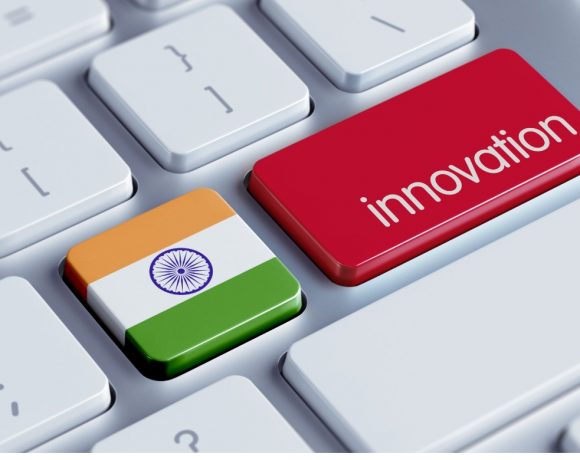- Technology innovation is taking place in the operating departments and supportive back offices; reskill and upskill are essential in the hospitality industry.
- With the booming trend of media use, data analytics and online business development have been strongly encouraged in the Chinese hospitality industry.
“Today, professional experience is no longer the main criterion for success: it has become just as important to be able to understand new technologies and put them intelligently at the service of the customer,” says Remi Walbaum, the Chief Innovation Officer at EHL.
The hospitality industry, considered one of the most labour-intensive industries impacted by the fourth industrial revolution, is seeking opportunities to enhance productivity, efficiency, and cost reduction. As technology innovation is not only taking place in the frontline operating departments but also in supportive back offices, reskilling and upskilling labour is essential in the hospitality industry.
Hands-free in the frontline
According to MAI TAO, as one of the world’s most innovative countries, China has achieved a growth of 33% (Tao, M. 2020) in the service robotics market in 2019, which is also an indicator of rapid innovation in the Chinese hospitality industry. At the same time, the hospitality industry faces a revolutionary challenge in seeking new talent due to the era of digital hospitality.
For instance, Chinese e-commerce giant Alibaba’s futuristic hotel, FlyZoo Hotel, aims to achieve better efficiency and ultimately circumvent human labour costs by adopting advanced robotics. According to the guest reviews on TripAdvisor, most comments have optimistic attitudes regarding this tech-driven hotel, especially the entertaining robotic service. However, the existing criticisms relate to the limitation of AI, such as in the cases of the Mandarin-speaking-only AI program and passport recognition AI, complaints that echo the point of the research that current AI technology has limitations in performance and consumer acceptance. (Drexler, N. 2019)
Therefore, as indicated in the same research, integrating AI and robotic technology in the hospitality industry can ease the workload of staff performing simple routine tasks in operating departments. At the same time, it is crucial for staff to understand the technology implemented and acquire knowledge of robotics and human interactions. As automation and digital technology reduce the burden on staff, it is vital for them to learn emotional and problem-solving skills, which are the keys to reaching service excellence, especially with the ongoing trend of the experience economy.
New challenges or new opportunities
Information communication technology (ICT) plays an indispensable role in administrative departments, such as marketing and human resources. Especially after the COVID Pandemic, the demand for information communication technology rocketed, including live promotion, online conferences, and 5G technology. (Lau, A. 2020)
Statistics from New technologies used in COVID-19 for business survival: Insights from the Hotel Sector in China (Lau, A. 2020) indicate that the most famous Chinese short video platforms Tik Tok and KuaiShou have experienced a sharp increase in new users, up to 100,000-500,000, in 2020. With the booming trend of media use, the integration of data analytics and online business development has been strongly encouraged in the Chinese hospitality industry.
Novel live stream platforms such as JING Social have been broadly adopted. Consumer engagement has extremely increased drastically on those platforms, especially during the COVID pandemic. Well-known hotel groups have been actively involved in this digital transformation; for example, Marriott’s cooking classes gave the audience chances to win discounts and hotel vouchers; Shangri-La and IHG also streamed cooking and fitness classes and even parties with live DJ sets on the live steam platform. (Parulis-Cook, 2020).

Big Data in the Age of the Coronavirus, Daniel Aromí, 2020
Using live stream platforms to promote brands and services is just one step in following the continuing trend of digital evolution in China’s hospitality industry, a step that clearly indicates the essentiality of reskilling. With more media exposure, competition is set to intensify further. Therefore, it is necessary for hoteliers to consider the crucial skills that will be requested in the future.
Balance of skills in the future
“Industry 4.0” is a term that stands for automation and digitalisation. (Marr, B. 2019) It is worth noting that the future of the hospitality industry will be governed by data usage. There is also no doubt that technological innovation is significant for the hospitality industry. Nevertheless, as argued by Dr Achim Schmitt, the hospitality industry is human-centred, and the degree of automation and digitisation is relatively fixed. (Schmitt, A. 2021)
Machines and technology have a certain level of understanding of guests’ needs and requirements. Once the requests go beyond AI programming, human interaction becomes inevitable. Moreover, Dr. Schmitt suggests that humans need community creation and a psychological need for belonging, which cannot be accomplished by robotics. (Schmitt, A. 2021) Furthermore, soft skills such as management, service design, and leadership are highly valued and are considered essential for the hospitality industry. Therefore, soft skills education remains an irreplaceable course within the education system.
Upskilling and reskilling are necessary processes for practitioners to boost efficiency and adapt to the era of hospitality digitalisation. To affirm this, Julia Aymonier, Chief Digital Officer at EHL, conveys that studying and implementing mechanics can increase efficiency and productivity on a great scale. Using data analysis as a tool to predict the estimated production level can better demonstrate the optimised output level, which confirms the substantial value of reskilling or upskilling. (Aymonier, J. 2019) In addition, rocketing media exposure provides excellent opportunities for hoteliers to promote their brands. However, with the low entrance cost, the ongoing live stream campaign has intensified the market competition to a certain extent.
To sum up, soft skills are the irreplaceable foundation of the hospitality industry. In the digitalisation era, it is crucial to upskill and reskill technical skills regarding technology innovation. Finding the balance between soft and technical skills in hospitality management education is the next mission for incubators and educators within the hospitality industry.
Reference:
Tao, M. (2020, September 23). Service robotics market grows by 33 percent in China. Robotics & Automation News. https://roboticsandautomationnews.com/2020/09/23/service-robotics-market-grows-by-33-percent-in-china/36663/
Marr, B. (2019, July 11). What is Industry 4.0? Here’s A Super Easy Explanation for Anyone. Forbes. https://www.forbes.com/sites/bernardmarr/2018/09/02/what-is-industry-4-0-heres-a-super-easy-explanation-for-anyone/?sh=77cc9f269788
Schmitt, A. S. (2021, June). Industry 4.0: why people-centric leadership is key. EHL Insights. https://hospitalityinsights.ehl.edu/people-centric-leadership
Aymonier, J. A. (2019, May 14). Developing Hybrid Skills: How Tech and AI are Reshaping the Hospitality Job Market. EHL Inshights. https://hospitalityinsights.ehl.edu/tech-and-ai-reshaping-the-hospitality-job-market
Aromí, D. (2020, June 19). Big Data in the Age of the Coronavirus. Ideas Matter. https://blogs.iadb.org/ideas-matter/en/big-data-in-the-age-of-the-coronavirus/
Drexler, N. (2019). For better or for worse: Shaping the hospitality industry through robotics and artificial intelligence | Research in Hospitality Management. African Journals Online. https://www.ajol.info/index.php/rhm/article/view/192222
Lau, A. (2020, November 23). New technologies used in COVID-19 for business survival: Insights from the Hotel Sector in China. Inf Technol Tourism 22, 497–504 (2020). https://doi.org/10.1007/s40558-020-00193-z
Parulis-Cook, S. (2020, October 19). Guide to Live Streaming for Chinese Tourism Marketing. Jing Culture and Commerce. https://jingculturecommerce.com/guide-to-live-streaming-for-chinese-tourism-marketing-jing-travel/






NO COMMENT